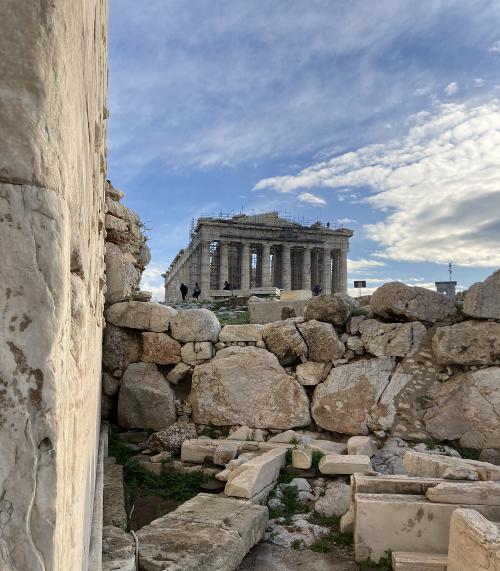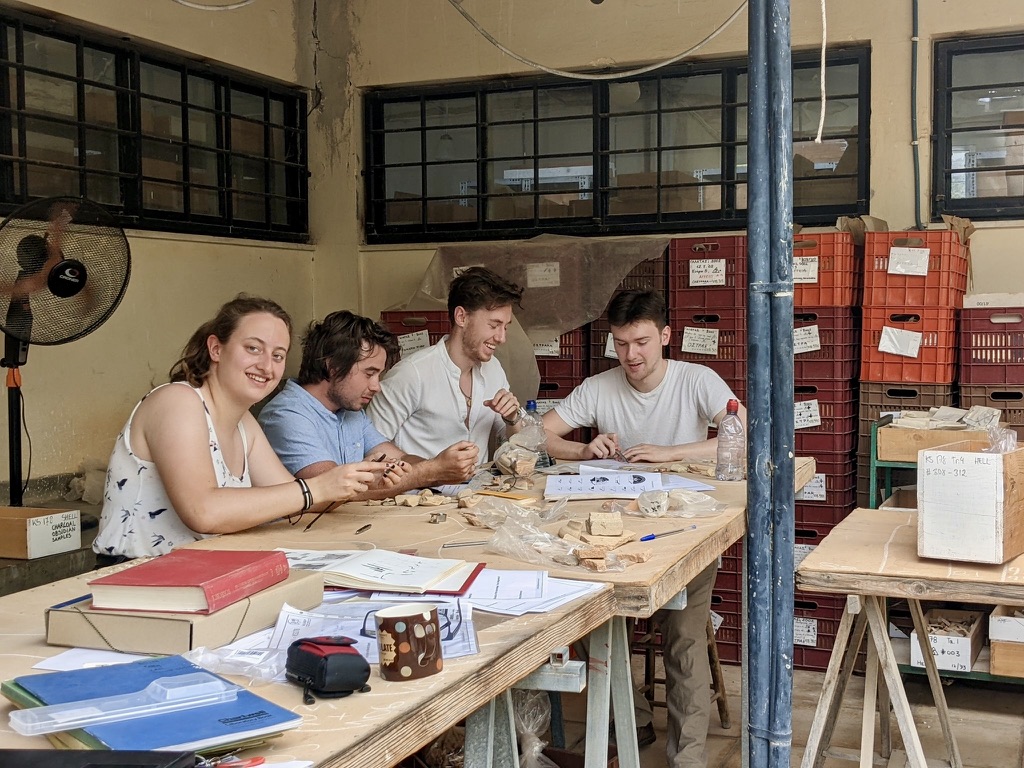Archaeological Fieldwork Module
CX386-15 Archaeological Fieldwork Module

Location: The Athenian Agora Excavation Archives, Athens, Greece.
Credit Weighting: 15 CATS.
Introduction
This intensive fieldwork module provides training in contemporary archaeological methods. This module has been designed to provide students from the University of Warwick who have completed their intermediate year with the opportunity for embodied-learning through engagement with unpublished archaeological finds. This experience enables students to work in a small-group setting with a Warwick lecturer and field-leading material culture specialists. The module offers the opportunity to engage with an international community of scholars working in Greece and to learn about the resources and facilities of the British School at Athens.
Lecture Topics
- Introduction to archaeological research methods
- Approaching legacy data
- Identifying pottery
- Quantifying the past
- How to catalogue finds
- Archaeological illustration
- Tour of local archaeological sites (e.g., Acropolis, Athenian Agora, Kerameikos Cemetery)
- Visits to local museums (e.g., National Archaeological Museum, Acropolis Museum)
Aims
This module will develop your ability to identify various classes of material Greek material culture according to field specific nomenclatures and chronologies. It will train you in contemporary archaeological methods and develop your ability to think critically about complex data sets. The assessments will deepen your understanding of contemporary problems in the history and material culture of Greece and encourage reflection on the interconnections between different finds through close observation and daily reflection. The module will also help you to develop transferrable skills for future employment in cultural heritage or archaeology positions.
Learning Outcomes
- Develop your ability to identify Greek material culture according to field-specific nomenclatures and chronologies.
- Improve your familiarity with how to record, catalogue, study, and illustrate archaeological finds in preparation for publication.
- Improve your ability to reflect thoughtfully on the connections between different archaeological finds as the result of close observation.
- Further develop your ability to communicate the results of your research through written assessment.
- Gain new transferrable skills in the areas of data processing and collections management.
Assessments (Due Term 1, Week 4)
- Attendance = 10%
- Reflective writing assessment = 40%
- Research essay = 50%
Participation
- For logistical and financial reasons, participation on this module is currently capped at 6 students.
- Applications for this module will be advertised in term 1 and admissions will be determined in term 2.
Talis Reading List
A representative reading list can be found here.

